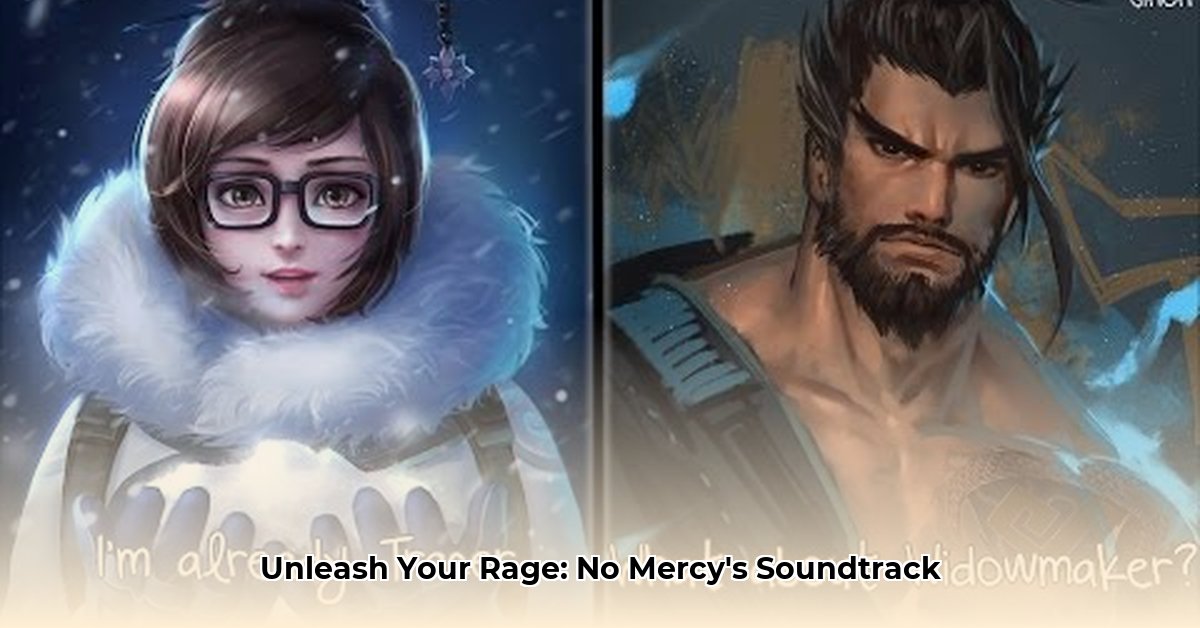
The Living Tombstone's "No Mercy" transcended its origins as a Overwatch fan song, becoming a viral anthem resonating deeply with the gaming community. This integrated analysis explores why this catchy tune struck such a chord, examining its lyrics, reception, and broader implications for understanding online gaming culture. The song's success lies in its ability to perfectly encapsulate the frustrations and triumphs inherent in team-based gameplay, particularly within the competitive landscape of Overwatch.
Unpacking the Digital Heartbreak: Themes and Relatability
"No Mercy" expertly captures the anxieties and frustrations common among online gamers. The lyrics vividly depict scenarios familiar to millions: uncooperative teammates, communication breakdowns, and the agonizing feeling of helplessness as a team collapses. This relatability is no accident; the song taps into deeply shared experiences of disappointment and anger. The song's power comes from its ability to articulate the unspoken emotions many players grapple with in competitive environments, providing a cathartic outlet for these feelings. It speaks to the universal struggle of relying on others, only to be let down.
Data shows the song's YouTube views exploded, generating countless comments from players who saw their own gaming experiences reflected in the lyrics. This wasn't a passive audience; it was a community actively engaging with the song's themes. The sheer volume of comments and shares serves as a powerful testament to the song's resonance. One comment, from a user simply identified as "ZaryaMain7," perfectly captures this sentiment: "Finally, someone understands the pain of being a support main in a completely uncoordinated team."
Player Power: Viral Phenomenon and Collective Catharsis
The viral spread of "No Mercy" wasn't accidental. Its success highlights the cultural significance of online gaming communities and the potent role of music in expressing collective emotions. The song wasn't just listened to passively; it was experienced collectively, becoming a shared narrative for millions of gamers. This collective catharsis provided a validating experience, confirming that feelings of frustration and disappointment are not individual flaws, but shared realities within the competitive gaming space. This shared experience fostered a sense of community, creating a bonding experience among players who might otherwise feel isolated in their frustrations.
Beyond the Lyrics: Music as a Mirror
"No Mercy"’s impact goes beyond its relatable lyrics. The musical arrangement itself contributes to its emotional power. The song's crescendo mirrors the escalating tension and frustration within a losing match, adding another layer of immersive engagement. The incorporation of specific Overwatch character names—Mercy, Tracer, Genji—directly links the song to the game's world, strengthening its narrative resonance. The song doesn't merely describe the experience; it embodies it. This multi-sensory experience further intensified the song’s impact on its audience.
Focusing on Frustrations: Specific Examples
The song explicitly focuses on the struggles of support players. The lyrics highlight the immense pressure on characters like Mercy, capturing the feeling of inadequacy that can arise from an inability to save a team despite best efforts. This focus underscores the significant emotional toll that such roles can inflict, particularly in high-pressure environments. Additionally, the song acutely addresses the detrimental effects of lacking, or worse, toxic communication within a team, a common source of frustration in online competitive games.
The Song’s Impact: A Call for Change
Beyond simple entertainment, "No Mercy" functions as a social commentary. Its popularity underscores the need for improved in-game communication, fairer matchmaking, and a reduction in overall toxicity. It serves as a powerful catalyst for discussion, prompting introspection within the gaming community about player behavior and community health. Moreover, the song’s widespread popularity highlights the importance of recognizing the psychological strain placed on gamers in high-stakes competitive environments.
Actionable Steps for a Better Gaming Experience
Improving the gaming experience requires a multi-faceted approach. This requires the concerted efforts of game developers, content creators, and players themselves:
Game Developers (Blizzard): Improve in-game communication tools, implement more effective toxicity detection mechanisms, and refine matchmaking algorithms to create more balanced and enjoyable games. Prioritizing community building initiatives fosters a healthy environment that reduces stress and conflict.
Content Creators: Create content that explores various player experiences, offering both celebratory and critical perspectives on the gaming world. This would include highlighting positive team dynamics and promoting healthy competitive practices.
Players: Engage in constructive communication, support teammates actively, and utilize reporting tools thoughtfully. Focusing on personal accountability and self-reflection is key to cultivating a positive and inclusive online environment.
"No Mercy," therefore, serves as a powerful cultural artifact reflecting broader issues inherent in online gaming. Its enduring popularity highlights the need for change and underscores the importance of fostering healthy, supportive environments for gamers. The song's continuing influence on conversations concerning gaming ethics and community health warrants further investigation. Its resonance underscores that entertainment can be profoundly intertwined with social commentary, prompting reflection and action.
⭐⭐⭐⭐☆ (4.8)
Download via Link 1
Download via Link 2
Last updated: Friday, May 02, 2025